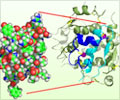
- Type 1 diabetes, previously known as juvenile diabetes is an autoimmune disease in which a person’s pancreas stops producing insulin.
- In the US 40,000 people are diagnosed with type 1 diabetes each year
- For children with type 1 diabetes, playing outdoors in the sun, swimming and staying up late during summer can wreak havoc with their blood sugar levels.
1.If your child is sleeping later than usual, check the child's blood sugar levels before letting the child go back to sleep.
2.When traveling, parents should make sure to pack a letter from their child's pediatric endocrinologist authorizing them to travel with syringes, needles and pumps.
3.Insulin pumps should not go through airport X-ray machines.
4.Insulin should be stored at room temperature, when taking a road trip, travel with a cold pack for insulin.
6.If you are on insulin pump, disconnect it before getting in the waters.
8.Parents sending their child to summer camp need to make sure the camp is aware of the child's needs. Find out if there is a counselor or a camp nurse who is familiar with the needs of Type 1 diabetes patients and who can treat high or low blood sugar levels. Find out where your child can store insulin and other diabetes-related equipment.
9.During summer, kids might be enrolled in new activities where others are not aware of their medical needs. Consider purchasing your child a diabetes ID bracelet.
10.Remember to stay well hydrated, especially in hot weather. Dehydration causes a rise in blood sugars. A good rule of thumb is to never wait until you are thirsty to drink water.
Source-Medindia















